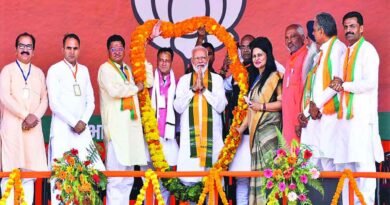Blight on the land
In India, unfortunately, politicking trumps environmental concerns
One way of viewing the recently released 2022 Environment Performance Index (EPI), which puts India at the bottom of the ranking, is by dismissing the index as alarmist. The 2022 EPI, prepared by Yale and Columbia University researchers, ranks 180 nations on 40 performance indicators such as climate change, environmental public health and biodiversity. Government supporters can also describe it as erratic, question its methodology, doubt the yardsticks it has used to prepare the index, and so on. Perhaps, India doesn’t deserve to be at the 180th place, but by any reckoning its ranking would not be much higher. For, other similar reports too paint a gloomy picture of our environment. Less than a year ago, the University of Chicago’s Air Quality Life Index (AQLI) found that air pollution levels could cost the residents of north India over nine years of life expectancy. It is a well-known fact that the air quality index (AQI) in northern States in the beginning of every winter zooms and causes medical problems to a lot of people, especially those with respiratory issues. The World Air Quality Report, prepared by Swiss organisation IQAir in March this year, said New Delhi was the world’s most polluted Capital; this was for the fourth consecutive year. Worse, it found that 35 Indian cities, with Rajasthan’s Bhiwadi on top, had the worst air quality tag for 2021. “With markedly poor air quality and quickly rising greenhouse gas emissions, India, for the first time, comes in at the very bottom of country rankings,” EPI said.
It also accused India and a few other countries of wrong prioritisation: “The lowest scores overall go to countries that are struggling with civil unrest or other crises, including Myanmar and Haiti, or nations that have prioritised economic growth over environmental sustainability, such as India, Vietnam, Bangladesh and Pakistan.” What is really wrong about the prioritisation in India is that governance figures (if at all) pretty low in the list of priorities. Emotive issues take the cake, whether it is about changing names of places, the mosque-temple rows, farm loan waivers, reckless populist schemes or caste census. The BJP leaders seem to be devoting more time studying the atrocities perpetrated by Aurangzeb and other Muslim rulers than working on effective measures to galvanise growth and generate employment. The Aam Aadmi Party subsidises pilgrimage. Bihar Chief Minister Nitish Kumar is spending his energies on caste census instead of focusing on the economic development of his State where the per capita income is about 55 per cent of the country’s. In the ultimate analysis, the environment is a governance issue, and unless leaders of all parties agree to work and cooperate with each other, we will continue to suffer. Sadly, politicians’ sole occupation seems to be politicking. About governance, their procrastination resembles that of Scarlett O’Hara’s of Gone With The Wind: “I’ll think about that tomorrow.” But, as they say in Hindi, tomorrow never comes.
Source: The Pioneer




